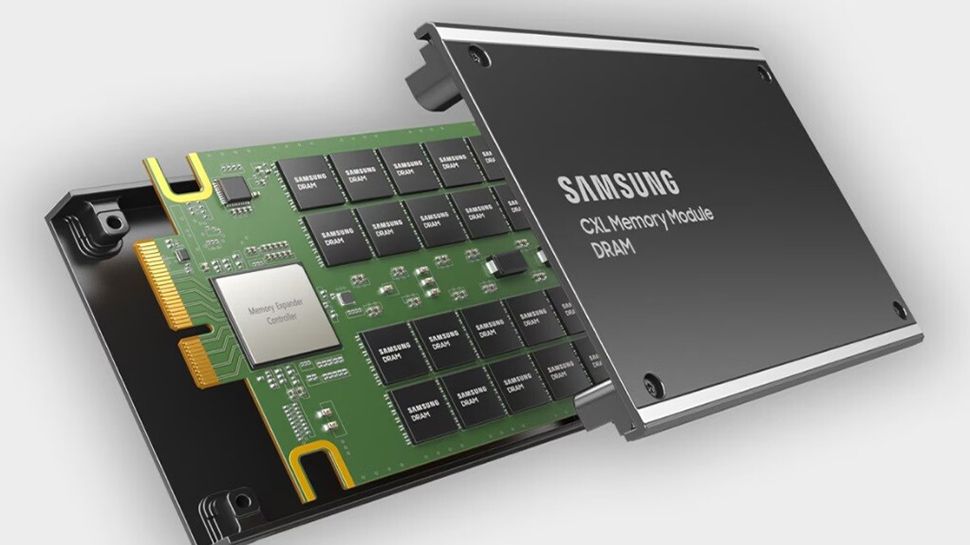Computer Express Link (CXL) improves how CPUs and GPUs interact with memory and accelerators, standardizing communication between devices, reducing latency and making systems faster and more capable of processing large amounts of data, which is especially important for applications that require rapid data processing, such as AI.
During a recent media briefing, Jangseok Choi, vice president of Samsung’s new business planning team, revealed that the company is moving forward with plans to begin manufacturing and shipping CXL-enabled memory modules.
“We plan to mass-produce 256GB DRAM that supports CXL 2.0 within this year. We expect the CXL market to blossom from the second half of the year and grow explosively from 2028,” Choi told media.
It took 10 years to create
Samsung predicts that the adoption of CXL technology will increase memory capacity per server by 8 to 10 times, significantly boosting computing power. A Samsung official explained to the Korea Economic Daily that CXL will “expand the highway connecting CPUs and memory chips from two or three lanes to eight lanes or more.”
Samsung’s CXL 2.0 DRAM, released in May 2023, supports memory pooling, a memory management technique that combines multiple CXL memory blocks on a server platform to form a pool and allows the host to dynamically allocate memory from the pool as needed, leading to more efficient use of memory capacity and optimized resource allocation.
While Micron and SK Hynix are both developing CXL-based memory products, “as the only memory manufacturer on the CXL Consortium’s board of directors, Samsung is committed to further expanding the CXL ecosystem through partnerships with data center, server and chipset companies across the industry,” Choi said.
“Samsung has been committed to developing and mass-producing high-quality CXL for more than 10 years,” he added. “We test the product together with our partners to verify its performance.”

